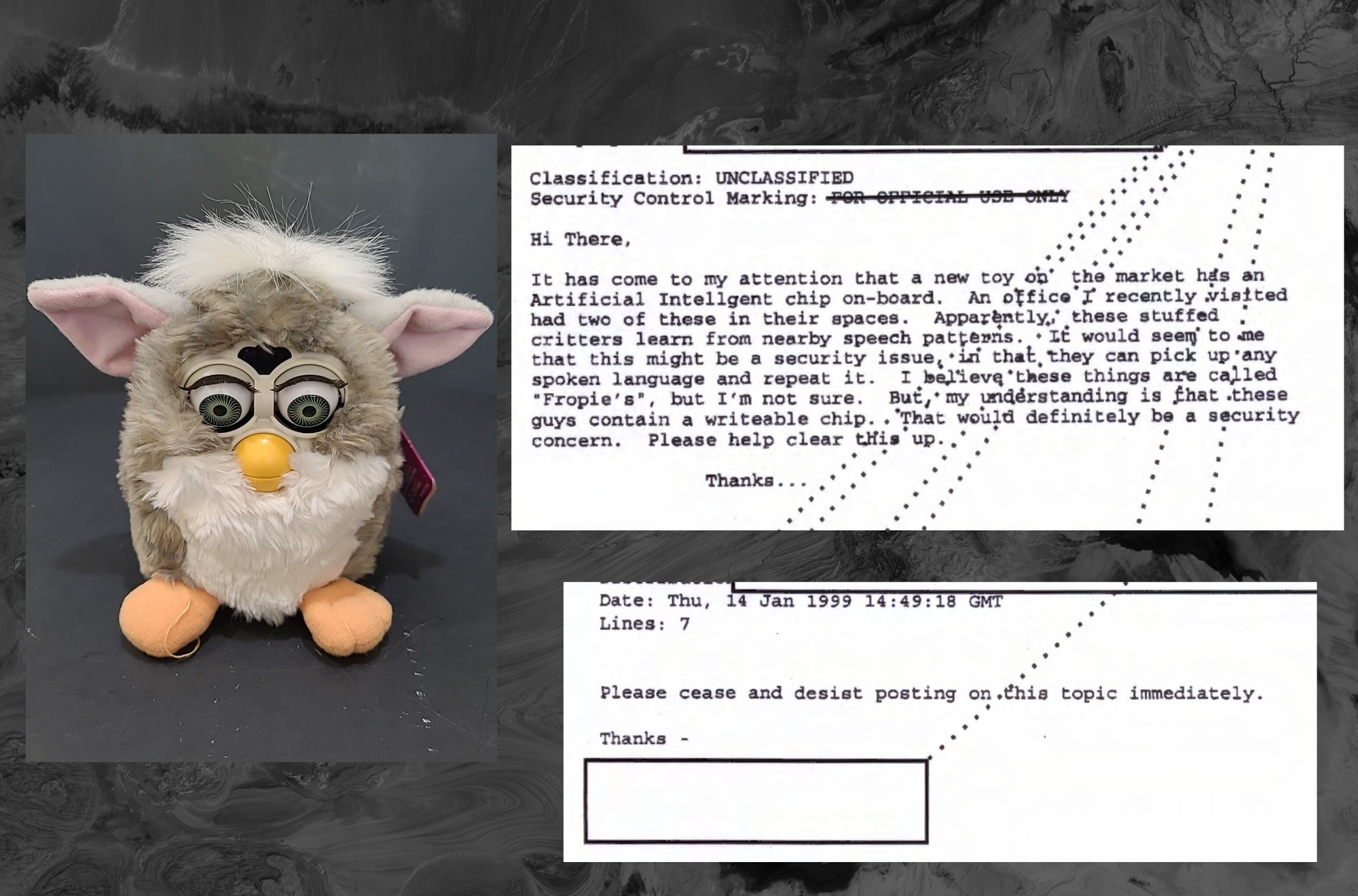Subscribe
The NSA has finally released a treasure trove of documents about the brief Furby panic of 1998 and 1999 at America’s top spy agency, in which it banned the toy from its offices as a potential spy device, discussed the toy’s ability to “learn” using an “artificial intelligent chip onboard” on an internal listserv, and ultimately was embarrassed by attention from the press after an employee leaked news of the ban to The Washington Post.
The NSA’s interest in and concern with the spying capabilities of the Furby—the iconic furry robot toy—has been documented over the years by various news outlets, YouTube channels, and the Federal Aviation Administration (which banned Furby operation during takeoff and landing). But previous write-ups rely on a brief news story in the Washington Post from January 13, 1999 called “A TOY STORY OF HAIRY ESPIONAGE,” which noted that Furby had been banned from the NSA’s offices in Maryland in part because they were worried that NSA employees would discuss classified information to the Furby, which could learn from it and would possibly repeat what it’d heard at a later date.
kotaKat, a "snarky internet bobcat" whose interests include furry fandom and infosec, filed a Freedom of Information Act request with the NSA a year ago because he was “bored in a group chat one night” and was discussing the episode, he told me. “I myself kept hearing about the stories about the ‘Furby Alert’ (turns out it's actually the ‘Furbie Alert’) but nobody ever actually provided hardline evidence of it. I just wanted to know what the policy memo on the NSA Intranet was.”
I have acquired the fabled NSA "FURBIE ALERT" memo.
— (da)kota/the/Kæt (@dakotathekat) January 22, 2024
I have a significant amount of documentation that came back on an FOIA and I'll be scanning it in the coming days.
Stay tuned. pic.twitter.com/Fyo04dm4Oo
On Monday, kotaKat got a manilla envelope of documents in the mail from the NSA mailed to their house with more than 60 pages of documents, including the original listserv thread, employee discussions about whether the Furby was actually a security threat, an internal memo trying to do damage control over the Washington Post story, and an exhaustive list of all of the media outlets that originally wrote about the ban. As a public service, they quickly scanned the documents and published them on the Internet Archive: “you can't type fast enough to explain the level of shitpost request you made a year ago to the Department of Defense and suddenly get 60+ pages in a manilla envelope sent straight to your doorstep.”

